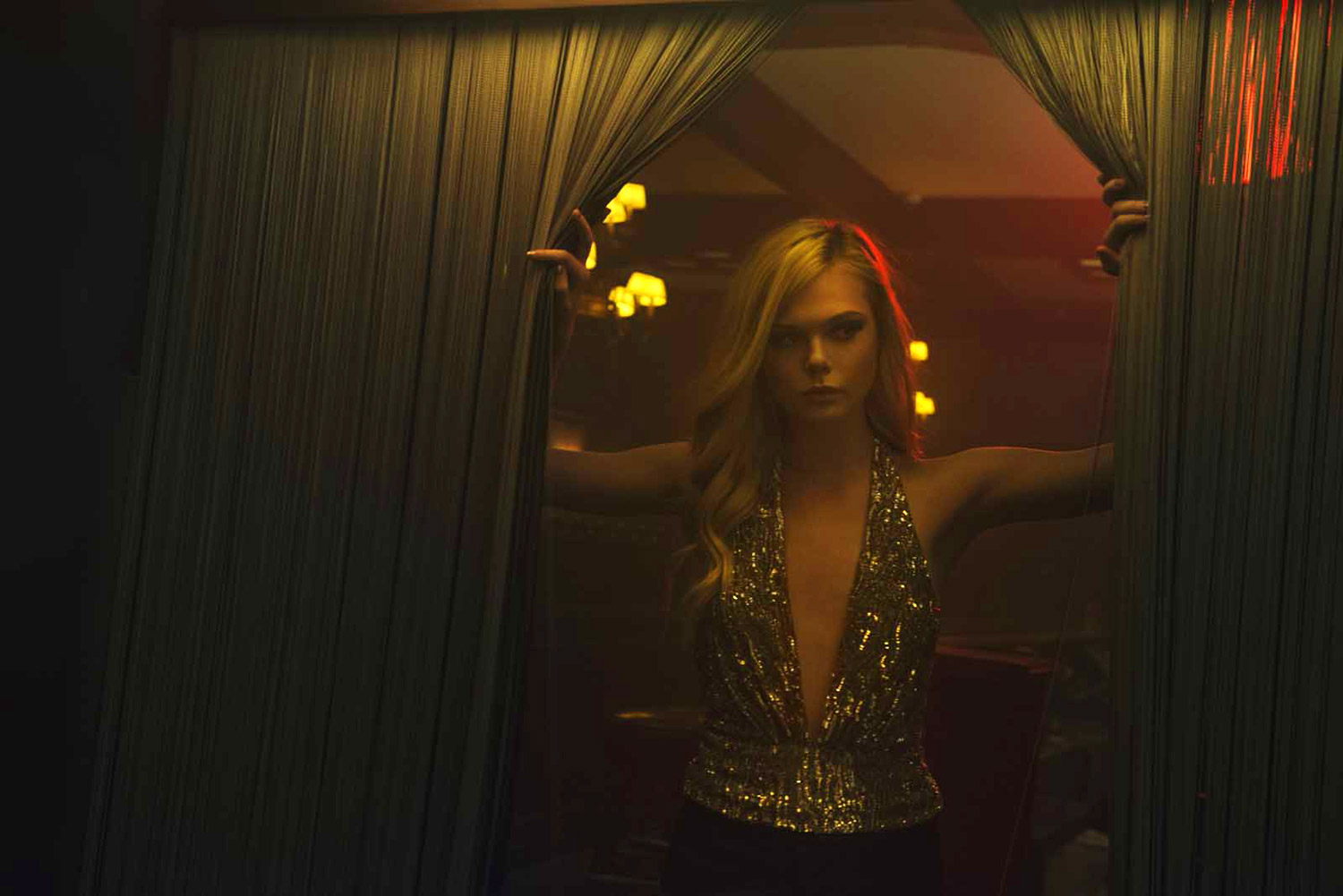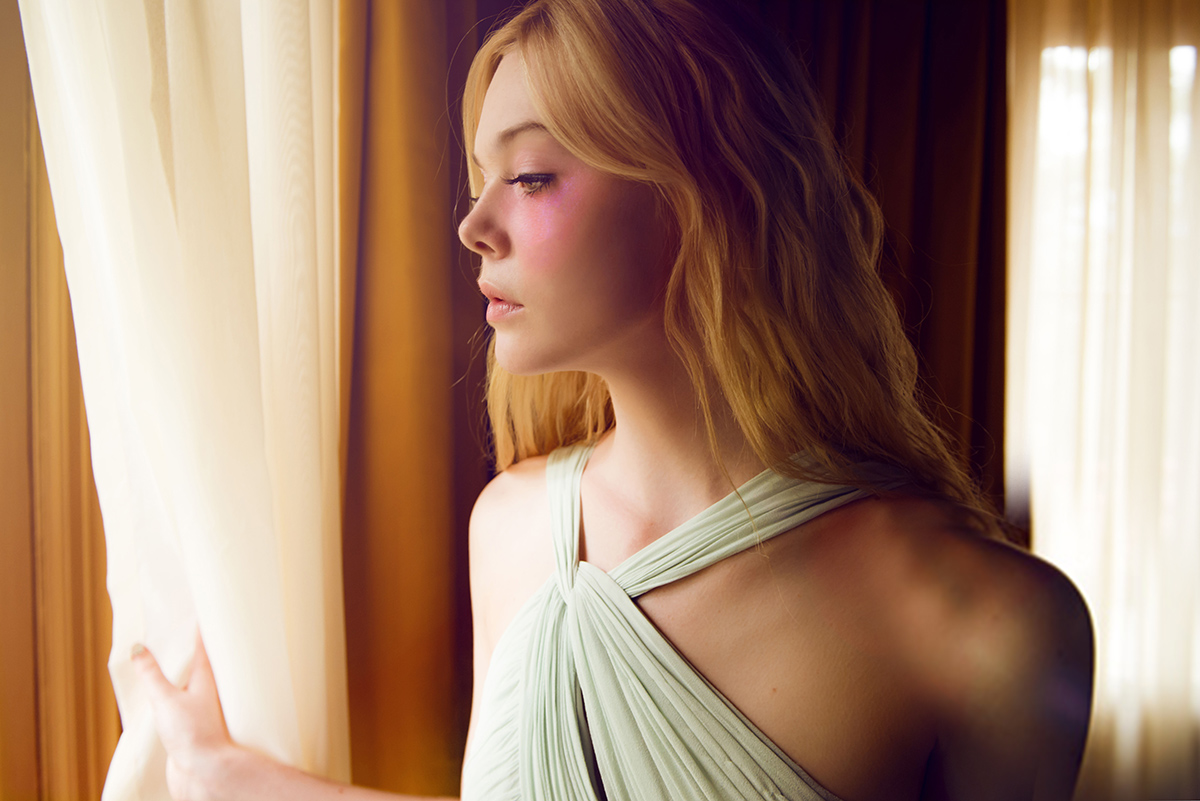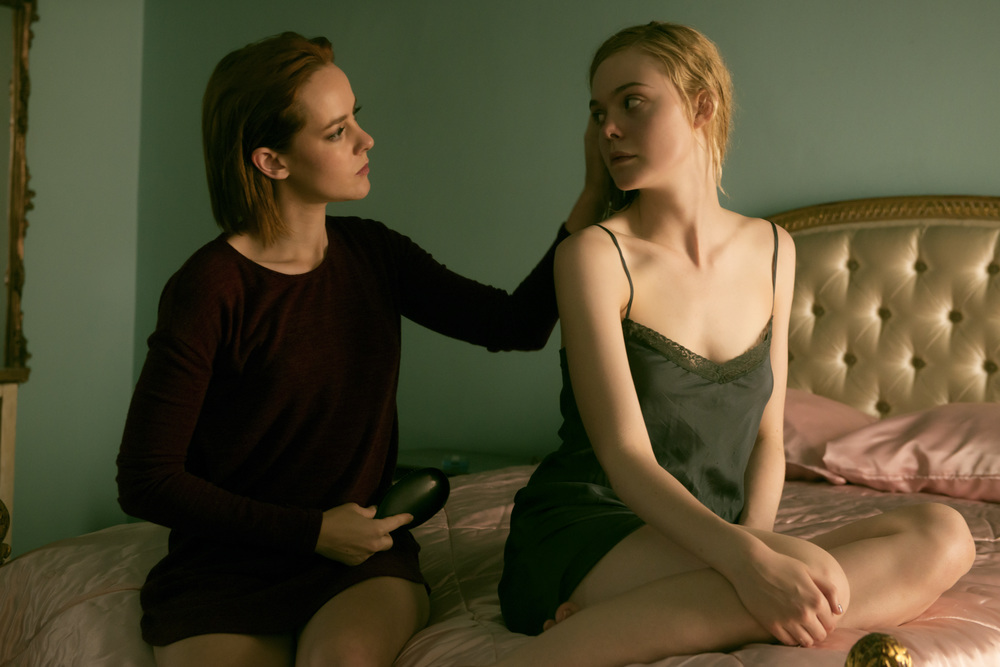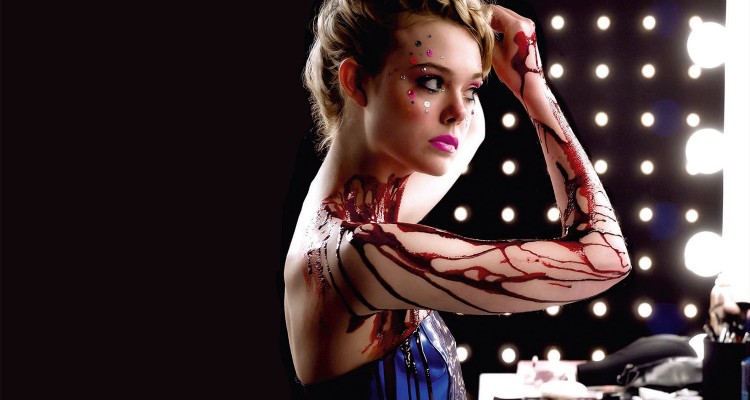Get ready to be engulfed in a slow motion tidal wave of menstrual blood and embalming fluid, then doused in a cloudburst of glitter because here comes Nicolas Winding Refn‘s “The Neon Demon” to raise the level of trash malarkey in all our lives. In 2013 Refn brought “Only God Forgives” to Cannes, a vapid exercise in style over substance that got roundly booed and was generally pretty dull. And now he returns with “The Neon Demon,” a vapid exercise in style over substance that got roundly booed and is pretty much a blast. Unmarred by the stodgy self-seriousness of his Bangkok-set outing (in fact there are just enough genuine, deliberate laughs here to make us wonder why there aren’t more), and successfully buying itself a pass for its shallowness by taking shallowness as its subject and then delivering it with such flair it’s almost depth, “The Neon Demon” is a gorgeously grotty little number without a thought in its pretty little head. It will be disliked by many for inarguably valid reasons, so the least the rest of us can do is feel a little ashamed of ourselves for enjoying it so much.
Narcissus drowned trying to kiss his own reflection in a river. Exchange Narcissus for Elle Fanning‘s Jesse and make that a metaphorical river of blood and you’ve basically got the whole story of “The Neon Demon” — as in, not a synopsis, the actual, entire story on a 1:1 scale. Jesse arrives in Los Angeles from Georgia, and as louche, worldly make up artist Ruby (an excellent value Jena Malone) tells the trembling ingenue, “Don’t worry, the deer-in-the-headlights thing is exactly what they want.” Jesse does indeed instantly become the flavor of the month in the Big Bad L.A. fashion industry: it seems only a matter of time before its ravening jaws clamp down on our nubile heroine and swallow her whole.
 Certainly, stunning, coltish specimens Gigi (Bella Heathcote) and Sarah (Abbey Lee, awesome) don’t initially find anything too intimidating in Jesse’s borderline milkmaid wholesomeness, until they realize that her disingenuousness is exactly what makes her so desirable. Except Jesse isn’t really so disingenuous at all, and her refreshingly down-to-earth attitude to her own beauty (in response to cosmetically enhanced Gigi’s airy remark that “Nobody likes how they look” Jesse whispers “I do”) turns out to be something else altogether. Something mean, or, as she says her mother used to call it, “dangerous.” Refn may paint the beauty-as-currency, beauty-as-weapon canvases with a broad, simplistic brush, but this is not a film overflowing with knotty philosophical ideas, so we take what we can get.
Certainly, stunning, coltish specimens Gigi (Bella Heathcote) and Sarah (Abbey Lee, awesome) don’t initially find anything too intimidating in Jesse’s borderline milkmaid wholesomeness, until they realize that her disingenuousness is exactly what makes her so desirable. Except Jesse isn’t really so disingenuous at all, and her refreshingly down-to-earth attitude to her own beauty (in response to cosmetically enhanced Gigi’s airy remark that “Nobody likes how they look” Jesse whispers “I do”) turns out to be something else altogether. Something mean, or, as she says her mother used to call it, “dangerous.” Refn may paint the beauty-as-currency, beauty-as-weapon canvases with a broad, simplistic brush, but this is not a film overflowing with knotty philosophical ideas, so we take what we can get.
Outside of the central four-way dynamic between Jesse, Ruby, Sarah and Gigi (incidentally, #squadgoals) the film is populated with cameos and supporting bit parts — almost all of which are enjoyable and almost none of which have any bearing on the story. Christina Hendricks, as a modeling agent, only gets one scene, but does get to purr lines like, “I would never call you fat. Others might, but I never would.” Karl Glusman, bless him, is almost as vacuous a pretty boy as he was in Gaspar Noe’s “Love” and just as likely to be royally dumped by the object of his affections. And Alessandro Nivola is perfectly hilarious as the “Henry V“-quoting fashion designer who instantly anoints Jesse his new beauty standard. Keanu Reeves, however, is a more puzzling addition to the cast, and his character the most pointlessly icky. As the manager of the sleazy motel where Jesse lives, he does a very disturbing thing with a knife in what is a dream, and then is heavily implied to violently rape a 13-year-old, in what isn’t. Moments like that, untethered to the main plot by even the most tenuous of threads, serve to remind us that not all of Refn’s provocateur decisions are good ones: there are tiny lethal glass shards mixed in with all that harmless glitter.

But the scenes between the women are, by contrast, surprisingly well-written and archly delightful (Refn shares screenplay credit with newcomers Mary Laws and Polly Stenham). Gigi and Sarah — who are both shot as such flawlessly sculpted big-eyed goddesses that they almost look CG-ed, like really, really, sexy Gollums — get some choice bitch putdowns (and Lee’s tiny little snarled lip at a particular juncture is maybe the greatest moment in the whole film). Both actresses imbue their brittle characters with a surprising amount of dark soul beneath the porcelain masks of their beauty.
None of that matters, though. The plot and characterization in “The Neon Demon,” such as it exists, is designed solely to be a delivery mechanism for Refn and DP Natasha Braier‘s slick, synthetic, ultra-pop, neon-gothic imagery and for Erin Benach‘s fetishizable costumes, scored to Cliff Martinez‘s predictably excellent pulsating soundtrack: an electro dream tinged with scuzzed-up fairytale music-box motifs. The plot is the mere excuse for an already notorious lesbian necrophilia scene, and a potentially seizure-inducing epileptic-trapeze-bondage-themed party sequence. And for every memorable image or swoony sequence that is even nominally justified by the story, there are two or three that aren’t: wildcats in motel rooms, flashing triangular installations, and endless closeups of Elle Fanning’s changeable, slightly asymmetrical face. One moment kewpie-doll cute, the next angular and insolent, Refn’s constant return to Fanning’s face is an essay in itself, about the beholder and the beheld, and about how very wrong Keats was in suggesting an equivalence between beauty and truth.

Spectacular, gross and delicious (so unsavory it’s almost sweet), the film is more proof of Refn’s mastery of his trash aesthetic and more fun than anything this indulgent and empty-headed has any right to be. If he can ever find some meaning to attach all these glorious signifiers to, he might be on to something, but the wilfully surface, nasty camp of “The Neon Demon” will do just fine till that day comes. [B+]
Check out the rest of our coverage from the 2016 Cannes Film Festival by clicking here.

